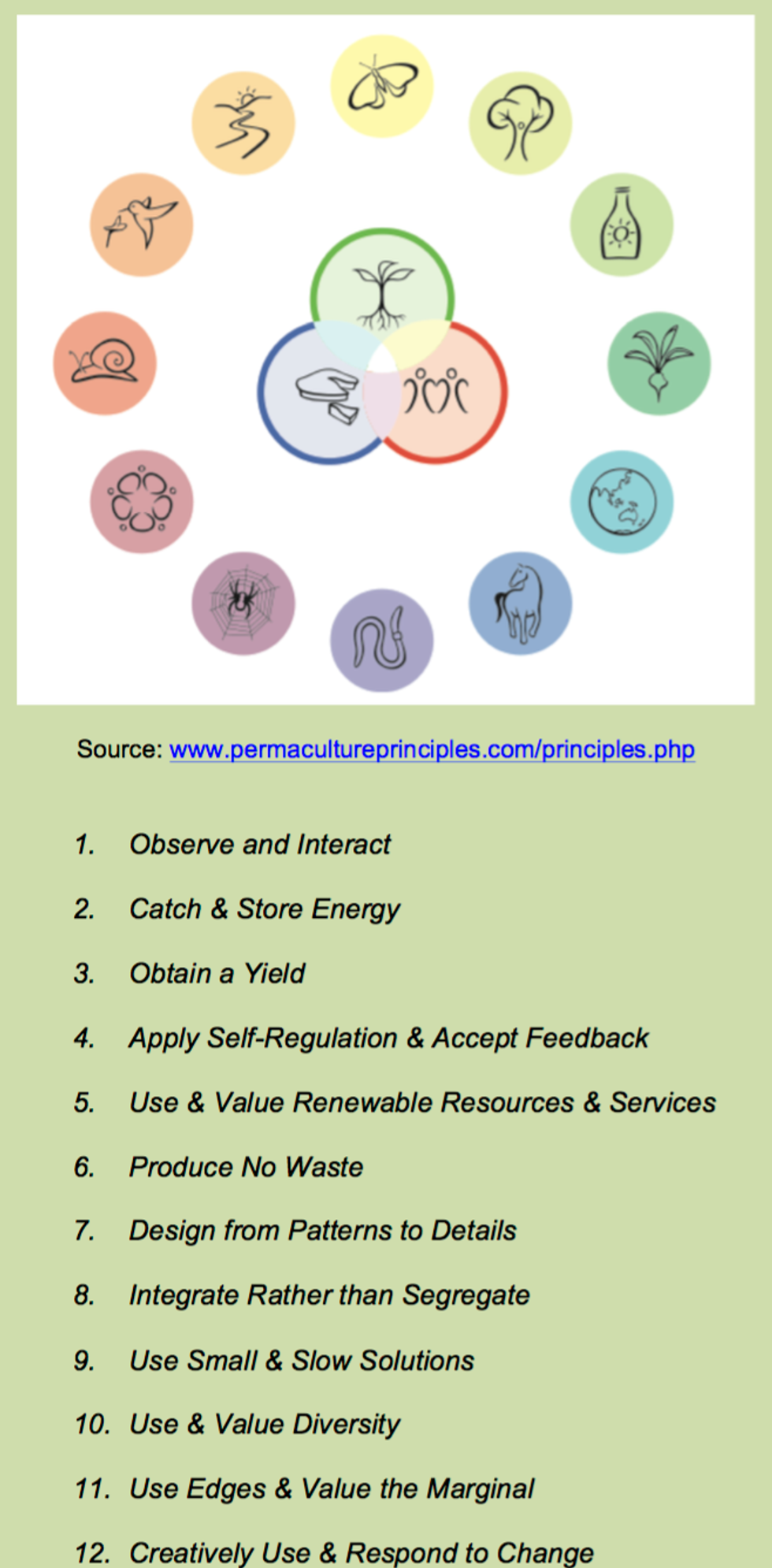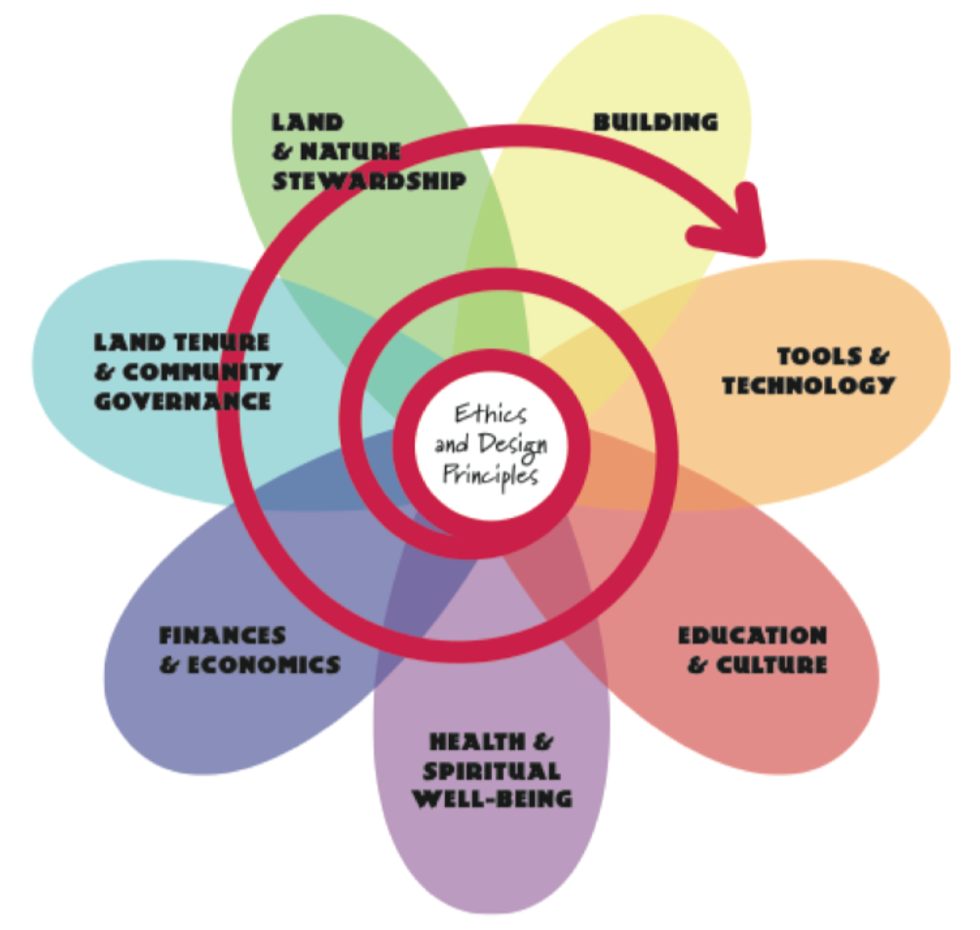Permaculture is an ethical design approach rooted in observation of natural systems. These systems can serve as a platform for creating regenerative landscapes for human material (e.g., food) and non-material needs (e.g., legal structures). It stems from permanent agriculture, but has transformed into an inclusive permanent culture, with disciplines such as cultural connection, community development, health and nutrition, and animal husbandry.
In the last decade, systems designed using the permaculture approach has flourished as more folks have sought practices to minimize waste, maximize efficiencies, and produce abundant yields.
Permaculture has three guiding ethics (Figure 1): care of the Earth, care of the people, and care of returns/fair share.
Fig 1. The three ethics of permaculture.
Source: http://www.permacultureprinciples.com/ethics.php
1. Care of the Earth. Earth sustains human life by providing air, water, food, and shelter. We need to take care of this planet and all of its natural systems.
2. Care of People. Humans are communal and social animals. We must help each other so that we can all have a good quality of life without harming Earth.
3. Care of Returns/Fair Share. We have finite resources, which means we have to be strategic about how we use them. There needs to be limits on consumption and redistribution of surplus.
The three permaculture ethics are fundamental to the design philosophy, whereas twelve design principles (Figure 2) guide folks through implementations and systems management.
Fig 2. Twelve permaculture design principles.
1. Observe and interact. By engaging with nature, we can find inspiration for future adjustments or redesigns.
2. Catch and Store Energy. We can create structures to collect resources when they are abundant and use them at a later time. This principle can pertain to your personal energy.
3. Obtain a yield. Your efforts should be producing useful rewards.
4. Apply Self-Regulation and Accept Feedback. Feedback is valuable information that can help improve current and future conditions.
5. Use and Value Renewable Resources and Services. Make the best use of natural tools and processes in order to minimize waste.
6. Produce No Waste. Value all resources and find ways to recycle them.
7. Design from Patterns to Details. Take a step back and thing about the bigger picture.
8. Integrate Rather Than Segregate. Find connections between different elements.
9. Use Small and Slow Solutions. Act on the smallest, practical level.
10. Use and Value Diversity. Diversity is key in reducing vulnerability to different threats.
11. Use Edges and Value the Marginal. Edges or interfaces are areas for exchange of materials and energy.
12. Creatively Use and Respond to Change. View change as an opportunity for evolution and growth.
Figure 3 shows the permaculture flower. The core contains the ethics and design principles. The core represents the local level. The path moves outward and connects to seven pedals, representing seven fields of society. The evolutionary spiral is eternal.
Fig 3. The permaculture flower
Source: http://www.permacultureprinciples.com/ethics.php
If you wish to learn more about permaculture checkout https://permacultureprinciples.com or http://www.pricoldclimate.org.
























